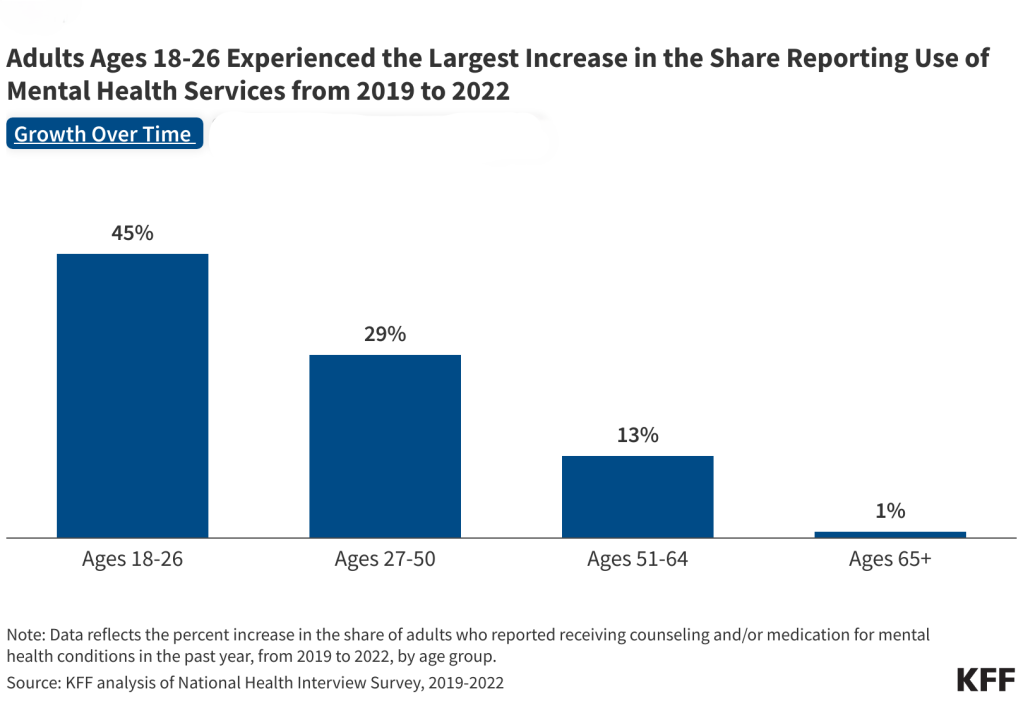
The independent source for health policy research, polling, and news.
The Share of Young Adults Who Received Mental Health Treatment Jumped 45% from 2019 to 2022, the Largest Increase Among Any Age Group
Overall, Women Are Twice As Likely As Men To Report Receiving Mental Health Treatment Over the Past Year
A new KFF analysis shows that the share of young adults (ages 18 to 26) receiving mental health treatment rose by 45% between 2019 and 2022 – a steeper increase than in any other age group.
More than 1 in 4 young adults (26%) received counseling and/or medication for mental health concerns in 2022, up from 18% three years earlier, according to the analysis of the most up-to-date National Health Interview Survey (NHIS) data available. That was a higher share than among adults in any other age group in 2022.

While other age groups experienced an increase in the share receiving treatment over the period as well, the increase was smaller: 29% for adults ages 27-50, 13% for adults ages 51-64, and 1% for adults 65 and above.
The spike in utilization among young adults roughly coincided with the onset and most challenging years of the COVID-19 pandemic – when school and work were significantly disrupted – although utilization of mental health services had been increasing even before the pandemic. Even so, research shows that among young adults with mental health conditions, many still report not receiving treatment.
Overall, 23% of adults received mental health treatment in 2022, up from 19% in 2019, the analysis showed. Specifically, the share of all adults saying they received mental health counseling rose from 10% in 2019 to 13% in 2022. At the same time, the share of adults reporting they took prescription medication for mental health conditions increased from 16% to 19%.
The analysis shows that women were nearly twice as likely as men to report receiving mental health treatment in the past year (29% vs. 17% in 2022). Other research suggests that men may be less likely to seek mental health care than women, and they are more likely to be uninsured and less likely to report a usual source of health care.
Other key takeaways include:
- Across racial and ethnic groups, the share of people who said they received mental health treatment in 2022 was highest among White adults (28%) and lowest among Asian adults (9%). That compared to 16% each among Hispanic adults and Black adults.
- Adults with insurance coverage are more likely to report receiving mental health care in the past year than adults without insurance coverage (25% vs. 11% in 2022).